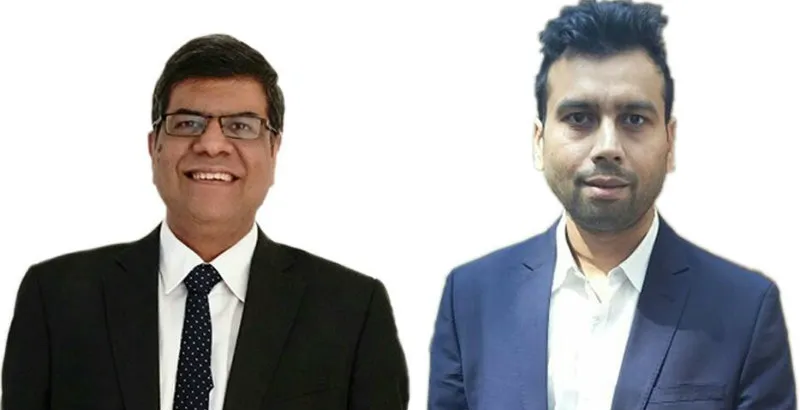How Mappr is optimizing existing learning process using data science
Most homegrown edtech products tend to focus on providing refined content or generic assessments to teachers and students. While this approach adds certain value, it fails to reach the core of the problem. Historically, students have learnt enormously from their peers apart from their teachers and parents. “We felt that connecting everyone on one secure platform and facilitating proactive communication and collaboration would generate tremendous amount of benefits for each party,” says Dheeraj Jain (36), Co-Founder, Mappr.

Mappr is a cloud-based technology platform that establishes a secure learning commune by seamlessly connecting schools, teachers, parents and students in a secure environment. This learning commune stimulates peer-to- peer learning to bring hesitant learners mainstream.
The brainchild of Dheeraj and Ashwani Duggal, Mappr also enables personalised attention without increasing the teacher’s workload, ensures proactive parental engagement and focusses on multi-dimensional development of the student.
Dheeraj is an active angel investor in Indian startups and so far did over 15 investments, including Shipsy, Deyor Camps, Dogspot and Burger Singh. Ashwani is an alumnus of Faculty of Management Studies (FMS, Delhi) and has professional experience spanning two decades, across companies like NIIT and S. Chand Harcourt.
Engagement is a key for optimised learning
Back in August 2015, the duo began their research by examining what is essential to learning and student development. Dheeraj adds:
We came to understand that learning happens when teachers invoke curiosity in her students and they come back with doubts, forming a continuous cycle of inquiry and resolutions.
The duo also figured that learning is a step-by-step approach with concepts building on each other like a staircase as one moves forward, and that both learning and development require the essential support of peers, teachers and parents. Having learnt this, they examined the current scenario in the education space to understand how learning and development were taking place.
Recommended read: With 16 deals Dheeraj Jain gears up to grab bigger slice of early-stage investment in India
Based on the findings of on-ground research, the duo decided that connecting teachers, students, schools, and parents on a network and combining it with user-generated content that would stimulate learning was the best way to achieve their mission.
For communication and collaboration, the company offers features like discussion forums (open and closed user groups), interest groups, private messages, sharing rich media content et al.
Collaboration helps better performance monitoring
Mappr allows the institution/teacher to connect its students to external experts, and provides complete flexibility in interacting with online data from other systems that the institution has access to - be it for administration, assessment, educational content or professional development.
The company happens to be one of the few edtech platforms to provide deeper analytics insight of student’s performance to the teachers (and tutors for the coaching centre), as well as teachers' performance to the principal, customised by the user using various data sources.
Target audience and traction
Mappr targets schools, colleges, pre-schools, coaching centres and tutors in India and globally. Currently, the nine-month-old venture has amassed about five lakh active users (students and teachers) across 200 plus schools, including five colleges and 12 coaching centres. “At present, we have 15 schools, two colleges and five coaching centres as paid customers,” says Dheeraj. The company charges anywhere between Rs 40 and 70 per students, depending on features they want to avail.
Why Wincourse acquired over 90 percent equity in Mappr?
Delhi-based full-stack platform dedicated for developing various edtech products, Wincourse acquired 85 per cent of Mappr shares at a very early stage of product development in the first phase, and then acquired another seven percent in second phase. “We gave exit to the non-technical team who originally started Mappr while retained the technical team,” adds Dheeraj.

Mappr competes with Ahmedabad-based Flinnt, Eckovation, Myly and Gyanfinder, including several others. The aforementioned startups are more or less inspired by the US-based Edmodo, a social network specifically designed for primary and secondary schools, offering a way for teachers to more easily assess students and trade tips. Quipper follows a similar business model in UK. The London-based company was acquired by Recruit Holdings in July last year.
Road ahead
The company plans to employ a platform approach. “Once adoption reaches a critical mass, we will service this platform with various apps. These apps will be both indigenous and third-party development,” adds Ashwani.
Besides adding value to existing learning infrastructures, Mappr also has an integrated in-house app called Trakkr. It’s a simple plug-and-play app that lets schools and parents track their students’ school bus on a map in real time. Dheeraj adds,
Going forward, we will be developing school administration, fee collection, diagnostics, scheduling and health apps.
The platform expects to have 10 lakh users by September 2016, with 300 plus schools, 20 colleges and coaching centres. It is developing various products and solutions for school, and tution centre solutions. “Our strategy is to acquire few startups at the early stage and do further product development in-house,” says Ashwani.







